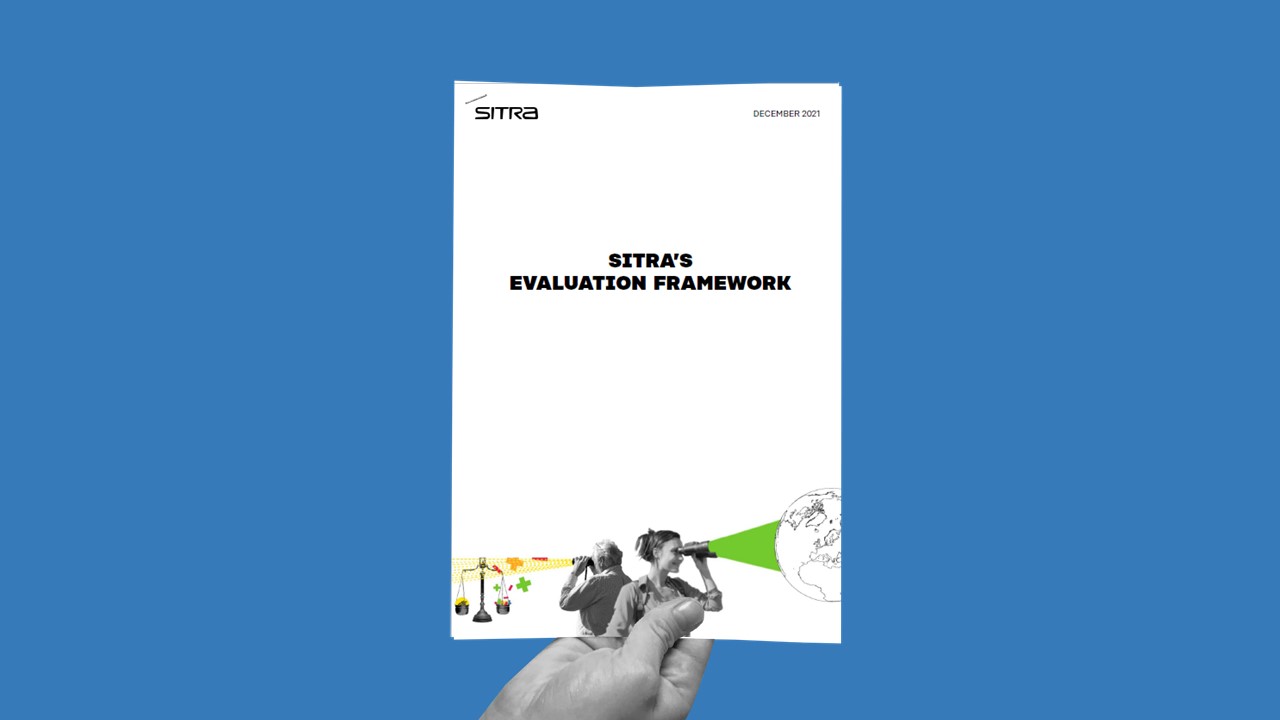Sitra is a future-focused fund driven by its vision and strategy. Sitra’s vision is that
Finland will prosper by building a fair, sustainable and inspiring future that ensures
people’s well-being within the limits of the earth’s carrying capacity. Sitra’s
continuous foresight and insight work inform the strategy which in turn guides the
societal impact Sitra pursues and the focus areas for its operations. Sitra has five
impact goals under the current strategy.
Building a fair and sustainable future requires holistic, systemic changes. Systems
change at Sitra refers to the simultaneous reform of operational models, structures
and their interactions, which are used to create the prerequisites for future welfare
and sustainable development. Systems changes are often generated in networks of
different activities, actors, and environmental factors and as a combined effect of
them, which makes their evaluation complex and challenging. Sitra aims to promote
systems changes in dialogue and collaboration with partners and other actors.
Evaluation refers to a systematic and intentional process of gathering and analyzing
data (quantitative and qualitative), to inform learning, decision-making and action. Sitra has a strong tradition of evaluation activity, with the oldest external, independent evaluations dating back to the early 1970s. Over the decades, the development of Sitra’s evaluation activities has been closely in sync with Finnish and international evaluation development and discussion. The purpose of evaluation at Sitra has been to provide reliable, high quality and independent information on results for administrative bodies (such as the Board and the Parliament of Finland) and the public, and to support Sitra’s strategic management, operational development and learning.
Sitra’s impact evaluation has been developed in recent years to complement Sitra’s other monitoring and auditing activities. In 2016, an approach to impact evaluation was adopted in response to increasing discussion on the importance of measuring impact, accountability of public organizations and evidence-based decision-making. The evaluation approach described here updates the 2016 evaluation approach. The update is based on the results and lessons learned from previous impact evaluations, changes in the international evaluation landscape and paradigm – including the 2019 updates to the OECD/DAC criteria and the impact of the Covid-19 pandemic since 2020, which also led to a broad new perspective on the role of evaluation.
Sitra’s approach to evaluation supports the development work that has been done to strengthen strategic management and impact thinking and practice. This update takes a more holistic approach to impact evaluation, based on the recognition that systematic information and analysis of the entire impact chain (IOOI) – resources (Input), activities and outputs (Output), outcomes (Outcome) and long-term impact (Impact) – is needed to underpin impact management and evaluation. An outline of the implementation plan and medium-term evaluation plan have been prepared to support the approach to evaluation. The three components form the evaluation framework for Sitra.
Citation Reference:
Thompson Coon, R, Vataja, K, and Parkkonen, P. (2022) Sitra’s Evaluation Framework

